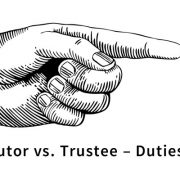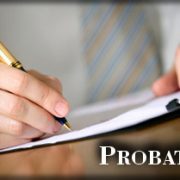What is a Trust Protector?
Cleveland, Ohio estate planning attorney, Daniel A. Baron, offers information on a Trust Protector and their Role and benefits realized as part of your Comprehensive Estate Plan:
Who is a Trust Protector?
As it sounds, a Trust Protector is appointed to oversee the assets in the trust and to protect against the trustees so that they do not give into temptation and embezzle from the trust or squander the assets of the trust with unnecessary fees or legal issues.
Having a Trust Protector typically was only used with the upper echelons of society but some may say that if there is a trust, there should be a Trust Protector. It is wise to appoint a Trust Protector especially in cases that the trust will be a long term trust such as:
- Trust for your spouse so that they will live a certain lifestyle after you pass
- Your children, grandchildren, or other heirs, that need to reach a goal in life prior to releasing the funds of the trust
- Charitable goals – what is your legacy
Upon setting up a trust and should the trust have more than one trustee, there is a possibility of issues coming up which are believed to not be in the best interest of the trust. Having a Trust Protector can potentially quash any conflicts which may arise. In addition, a Trust Protector can be very beneficial in other instances where conflict may arise.
Can I appoint anyone to be my Trust Protector?
You can appoint anyone you would like to protect your trust. Some ideas may be:
- Someone who is close to your family
- A Certified Public Accountant (CPA)
- An attorney
- Corporate Entity or Bank
- Financial Planner CFP
What are the duties of a Trust Protector and Why would I need one?
Additional duties of a Trust Protector are, but not limited to:
- If the trustee or trustees are performing in such a manner that is not advantageous to the beneficiaries of the trust OR are being unresponsive, the Trust Protector has the authority to remove the trustee and replace them if necessary.
- Should any disputes or conflicts arise between the trustees, the Trust Protector’s Role is to resolve the disputes.
- If there is a change of status with any of the beneficiaries, it would be the Trust Protector’s responsibility to update the trust accordingly.
- Should there be any new beneficiaries which needed to be added, the Trust Protector would make the necessary changes to the Trust.
- The Trust Protector also has VETO power of any financial / investment decisions which may not be in the best interest of the trust and it’s beneficiaries.
- If the laws governing trusts change, the Trust Protector has the ability to amend the trust if the changes are advantageous to the trust.
- The Trust Protector can manage the amount of money the trustees can spend by setting a dollar amount and/or requiring two signatures on a check before it can be released. The dollar amount will be predetermined upon the penning of the trust so that all the trustees and the Trust Protector are aware of this stipulation.
- The Trust Protector has the ability to dissolve the trust for specific reasons such as;
- There are no more funds in the trust as they have been released to the heirs as set forth in the trust and will
- The goals of the heirs have been met and all the funds are released therefore leaving no assets in the trust
It is wise to put in writing what role you would like the Trust Protector to have handling your assets. To start a discussion on your personalized comprehensive estate plan, including; living wills, trusts, power of attorney, or a pour-over will, or further questions on a Trust Protector, contact Daniel A. Baron of Baron Law. Baron Law provides estate planning services for the greater Cleveland, Ohio area. Contact us today at 216-573-3723.










